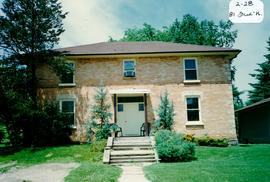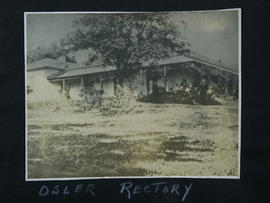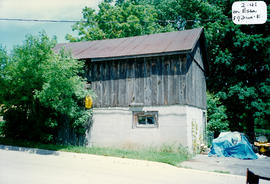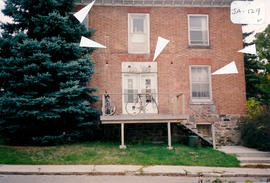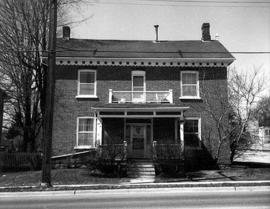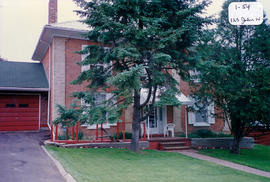81 Frederick Street - The Anglican Church Manse
- CA BWGPL GJ-HB-2017-03-22-02
- Unidad documental simple
- 1996
Parte deGeorge Jackson fonds
The former Anglican Church Manse is located at 81 Frederick St. (on the northeast corner of Church and Frederick Streets). The structure was built around 1880 in the Eclectic Neoclassical style. The two-storey, rectangular building has a medium-pitched, hip roof. The line at the front façade suggesting that the building originally had a full-width, front porch is another Regency Revival feature. The symmetrical window openings (with high floor to ceiling heights), a centre hall plan, and a wide entrance with sidelights and a transom are neoclassical features. Dichromatic brickwork at the quoins and window labels, as well as the ‘droopy’ label stops at the windows are Gothic Revival features. The house has solid, brick construction and a stone foundation. According to the 2000 inventory, the existing porch and entrance motif are unsympathetic with the original design. It also notes that, unlike the originals, the replacement windows have no muntins. (1, 2, 3)
Sin título

